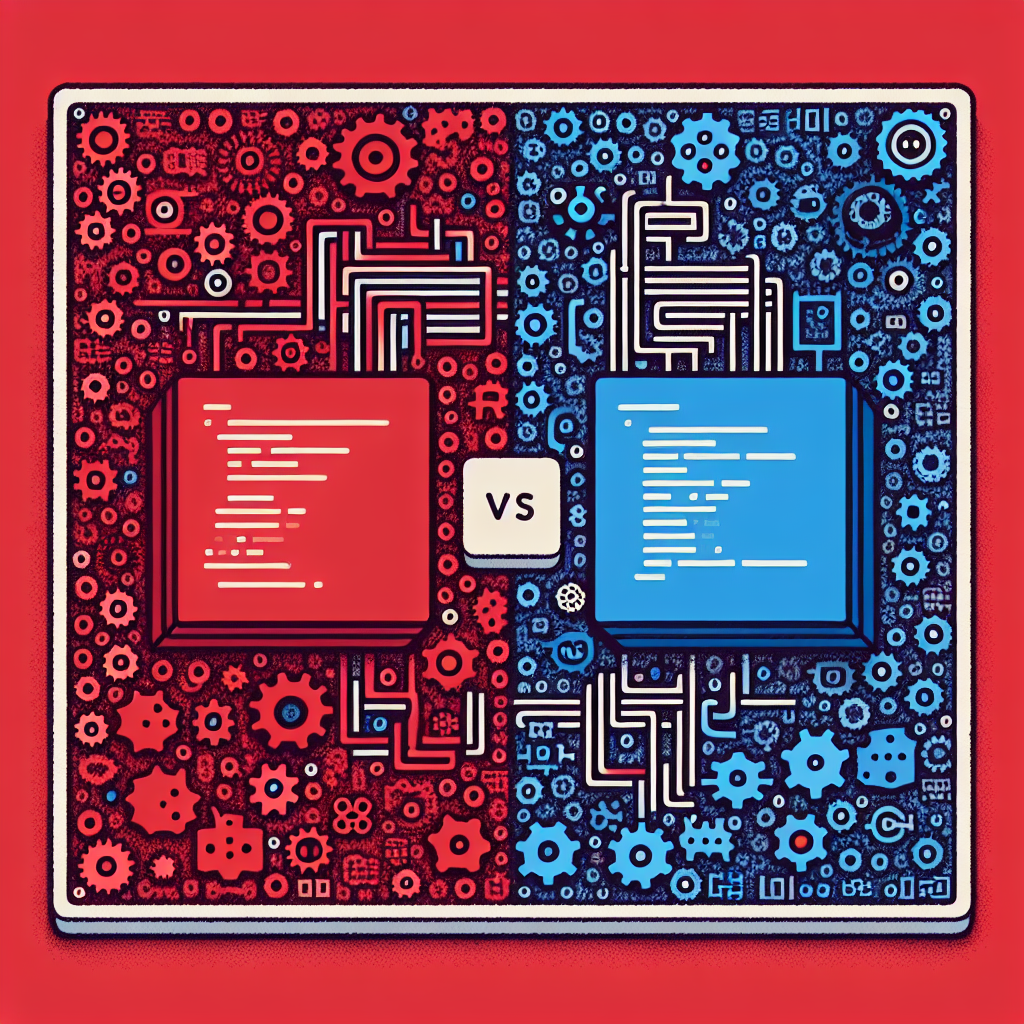Laravel vs. Rails: Which Framework Should You Choose for Your Next Project?
The debate between Laravel and Rails continues to heat up in the web development community. This article explores the strengths and weaknesses of both frameworks, helping you decide which one is the best fit for your next project.

Introduction
Choosing the right framework for your web application can feel like navigating a minefield. Laravel and Rails are two of the most popular frameworks, each with a passionate following. But how do you decide which one is right for your project? Let’s break it down.
What is Laravel?
Laravel is a PHP framework that aims to make web development easier and more enjoyable. Its elegant syntax, robust features, and vibrant ecosystem make it a favorite among developers. Laravel focuses on the simplicity of code, encouraging clean and maintainable applications.
What is Ruby on Rails?
Ruby on Rails, often just called Rails, is a web application framework written in Ruby. It's known for its convention over configuration philosophy, which means it favors convention to reduce the number of decisions developers need to make. Rails is designed to make programming web applications easier and more fun.
Comparison: Laravel vs. Rails
1. Language
The most obvious difference between the two frameworks is the programming language they use. Laravel is built on PHP, while Rails uses Ruby.
- PHP with Laravel: PHP is often seen as a go-to for web development, with a massive community and a plethora of resources. Laravel enhances PHP's capabilities with elegant syntax and powerful features.
- Ruby with Rails: Ruby is often praised for its readability and simplicity. Many developers enjoy the expressive nature of Ruby, which can lead to quicker development times for certain projects.
2. Performance
Performance can vary greatly depending on the specifics of your application and how well it is coded. Generally, both frameworks perform adequately for most web applications.
- Laravel: With the right optimizations, Laravel can handle a significant amount of traffic. Caching and database optimizations can enhance its performance further.
- Rails: Rails has a reputation for being slower than some other frameworks, largely due to its extensive features. However, with the right coding practices and server optimizations, it can still perform well.
3. Learning Curve
For many developers, the learning curve can be a deciding factor when choosing a framework.
- Laravel: Laravel’s syntax is user-friendly, especially for those already familiar with PHP. There are many resources available, from official documentation to community forums, making it easier to pick up.
- Rails: Rails promotes a strong convention over configuration approach, which can speed up the development process. However, it can be a bit daunting for those new to Ruby or web development.
4. Community and Ecosystem
Both Laravel and Rails have vibrant communities that contribute to their ecosystems.
- Laravel: The Laravel community is known for being welcoming and supportive. There are numerous packages available through Composer that can be easily integrated into your application.
- Rails: The Rails community is also extensive, with a wealth of gems (libraries) available for almost any functionality you might need. This makes extending your application straightforward.
Use Cases
When deciding between Laravel and Rails, consider the type of project you’re working on.
- Laravel: Ideal for projects that require a clean, modern architecture, especially those where PHP is already in use, such as content management systems, e-commerce platforms, and more.
- Rails: Perfect for startups and quick iterations, Rails is often chosen for projects that need to get off the ground quickly with a focus on rapid development and deployment.
Conclusion: Which Should You Choose?
Ultimately, the choice between Laravel and Rails comes down to your specific needs, preferences, and the project requirements. If you’re more comfortable with PHP, Laravel might be the way to go. If you love Ruby’s syntax and want to take advantage of Rails’ rapid development capabilities, then Rails could be your best bet.
Both frameworks have their strengths and can be used to build incredible applications. Whichever you choose, dive in with passion, and you’ll find that both communities offer the support and resources you need to succeed.
If you're looking for assistance with web development projects using either of these frameworks, feel free to reach out to us! Explore our custom programming services today.
And don’t forget to check out our free Server Uptime Monitor to keep your applications running smoothly!
Related Articles
Unlocking Growth: How Database Migration Services Benefit Growing Businesses
As businesses grow, so do their data needs. Database migration services can help streamline data man...
Unlocking Efficiency: The Power of Custom Inventory Management Software Development
In today’s fast-paced business environment, effective inventory management is crucial. Custom invent...
Transforming Business: The Impact of Custom Software Solutions
In the digital age, custom software has become a game-changer for businesses. This article delves in...